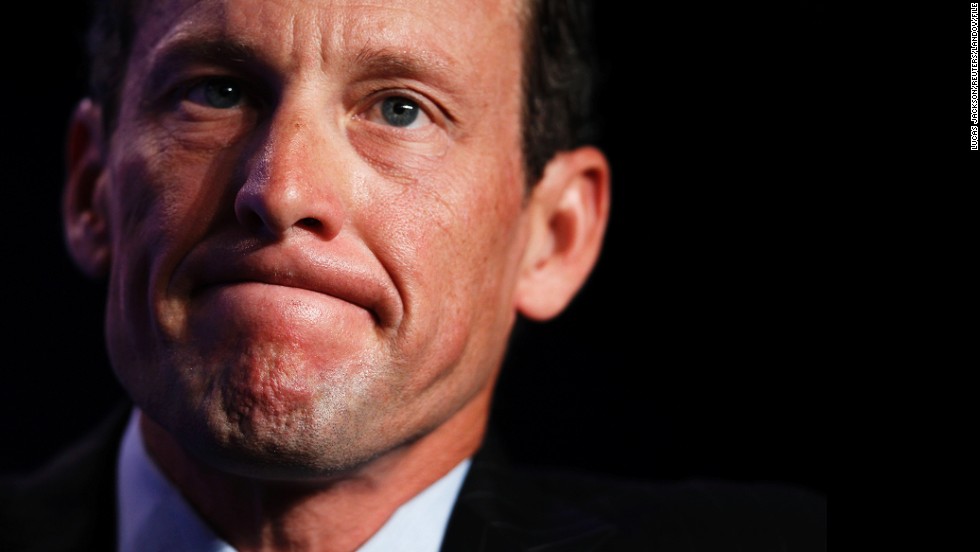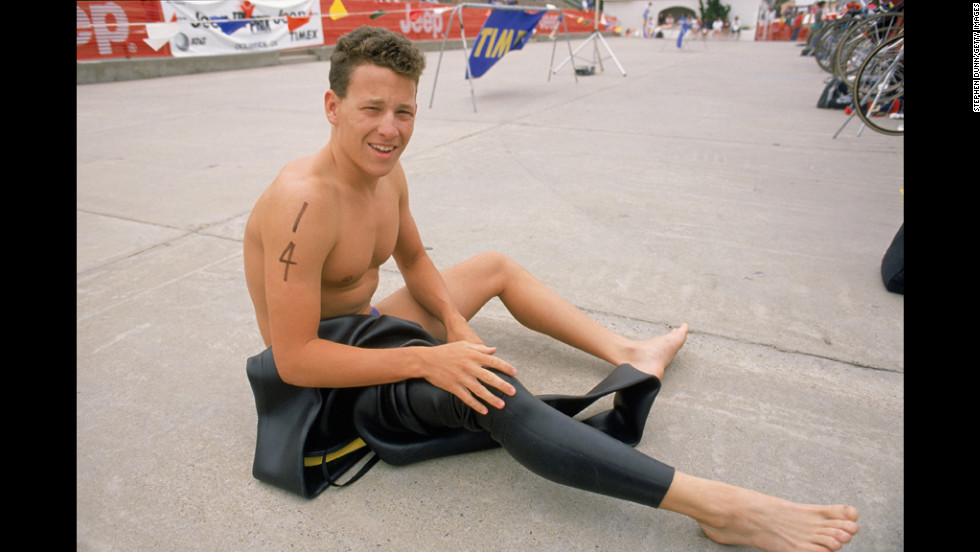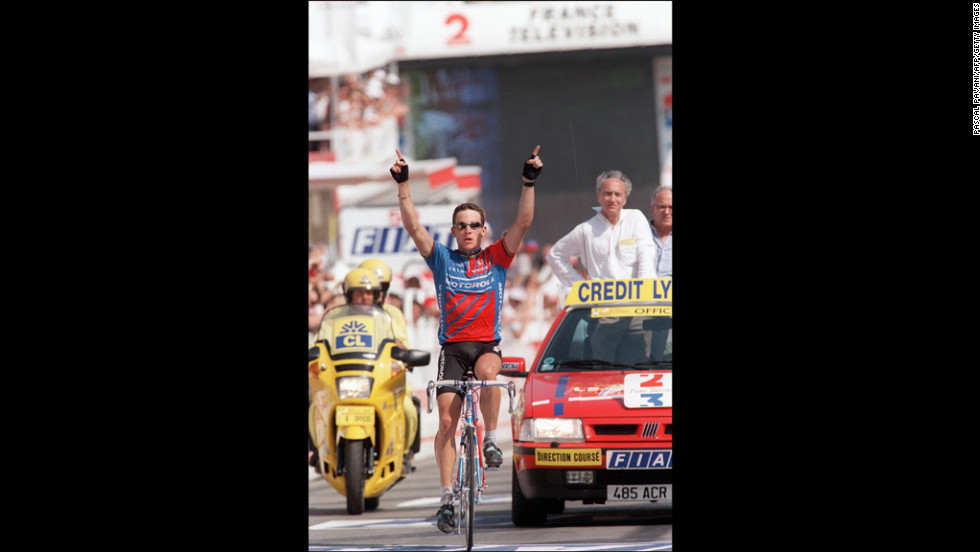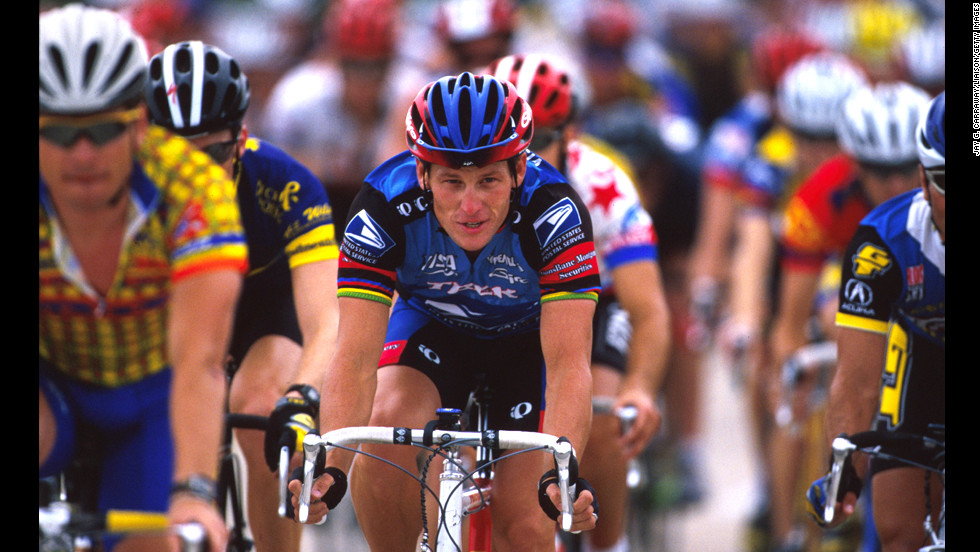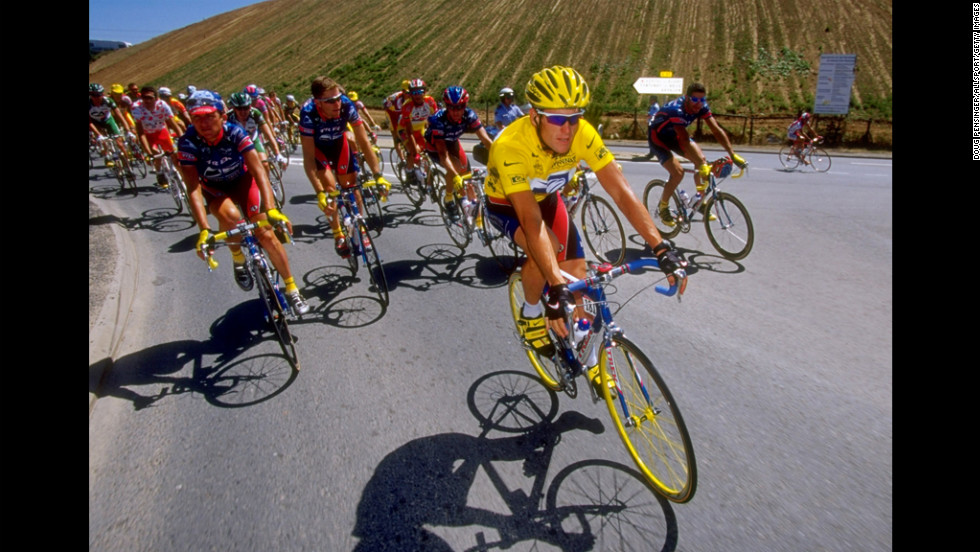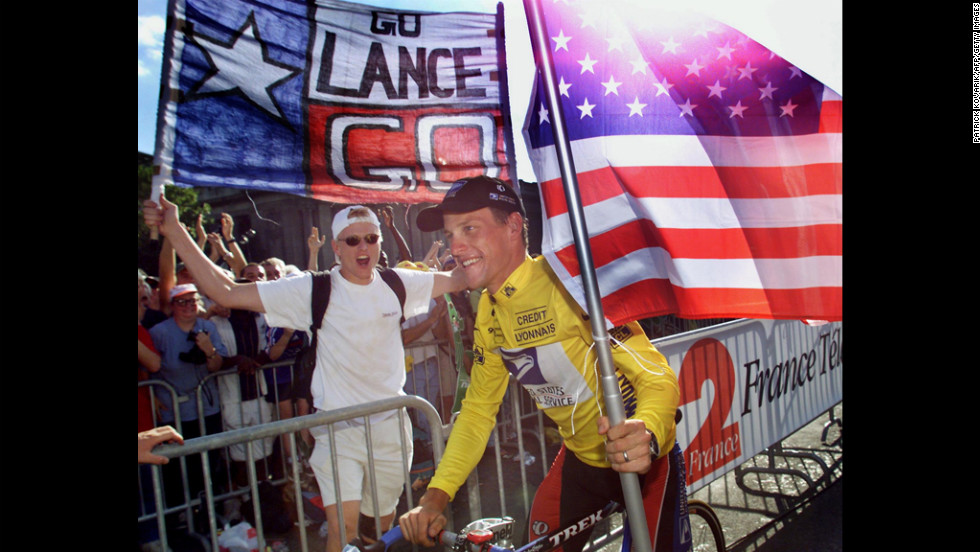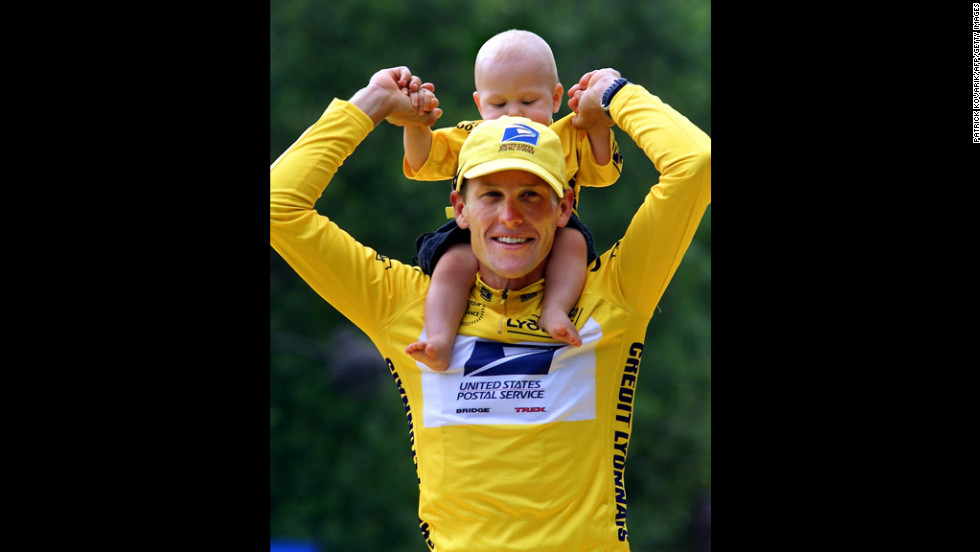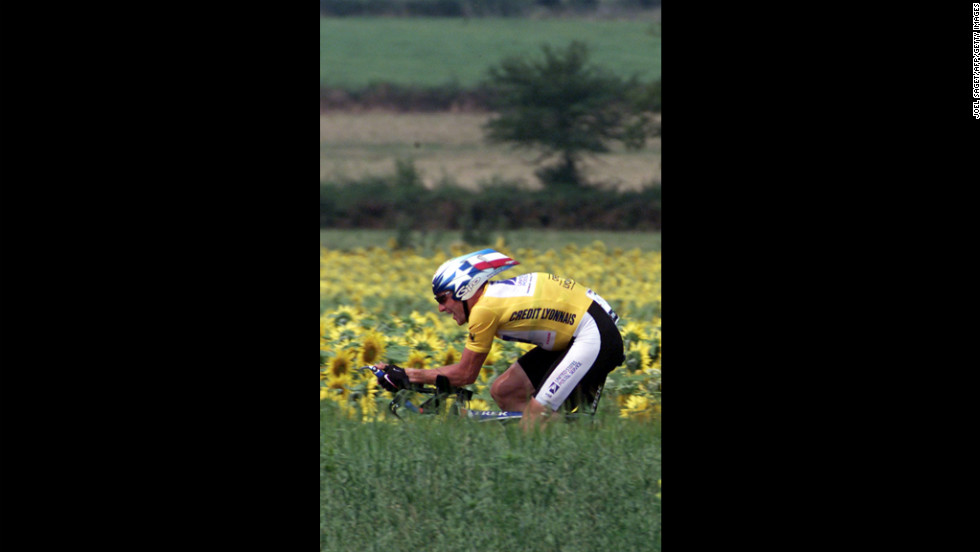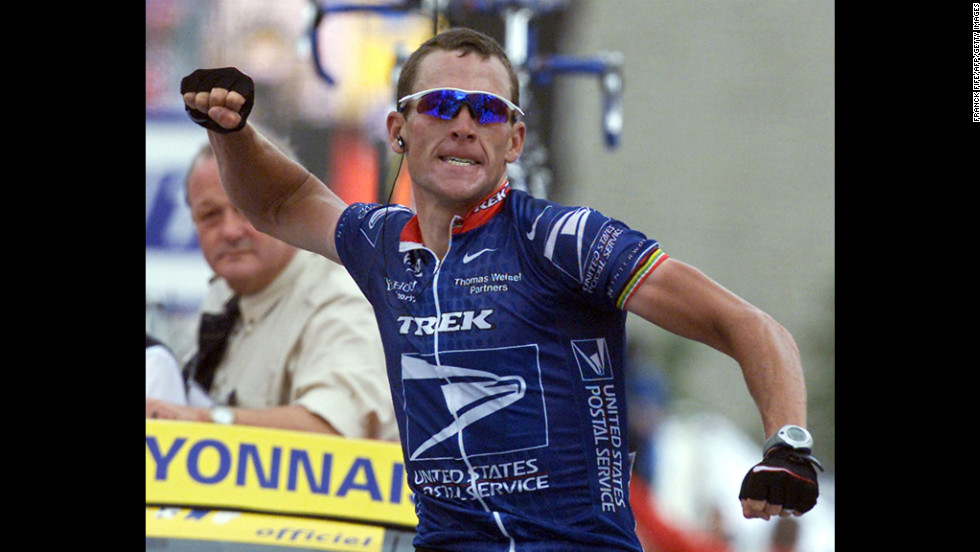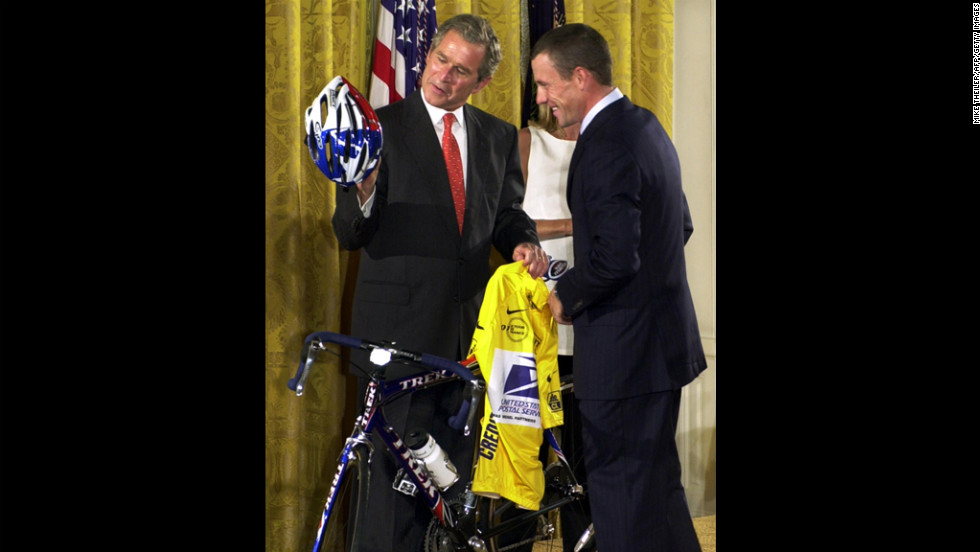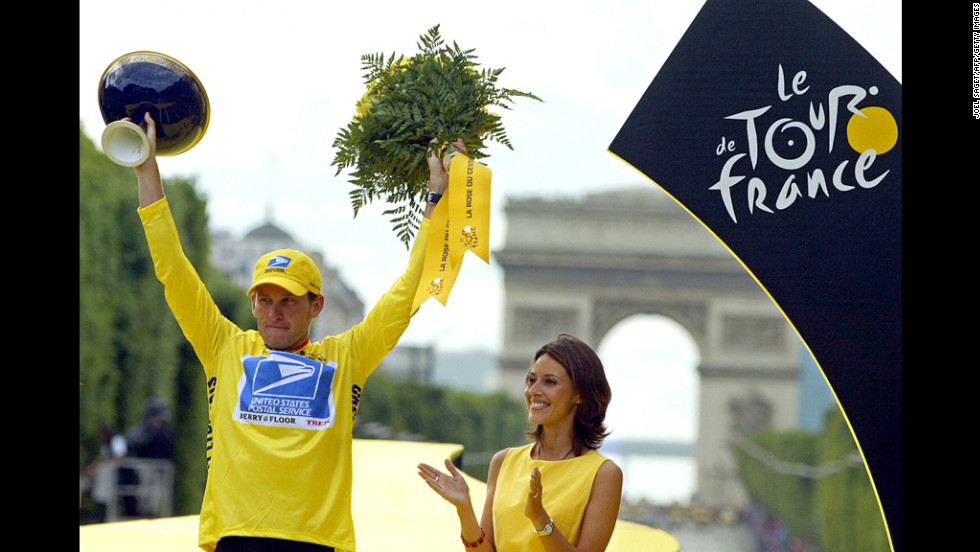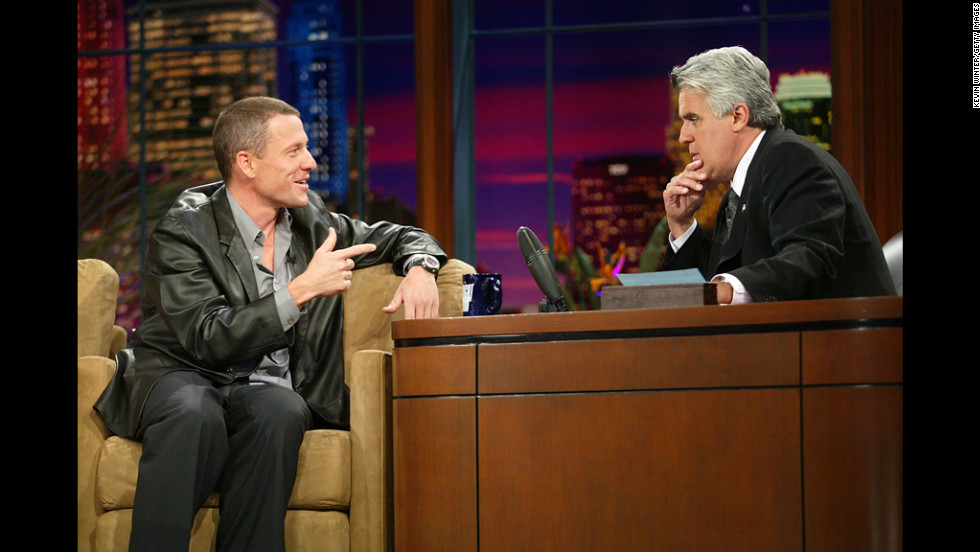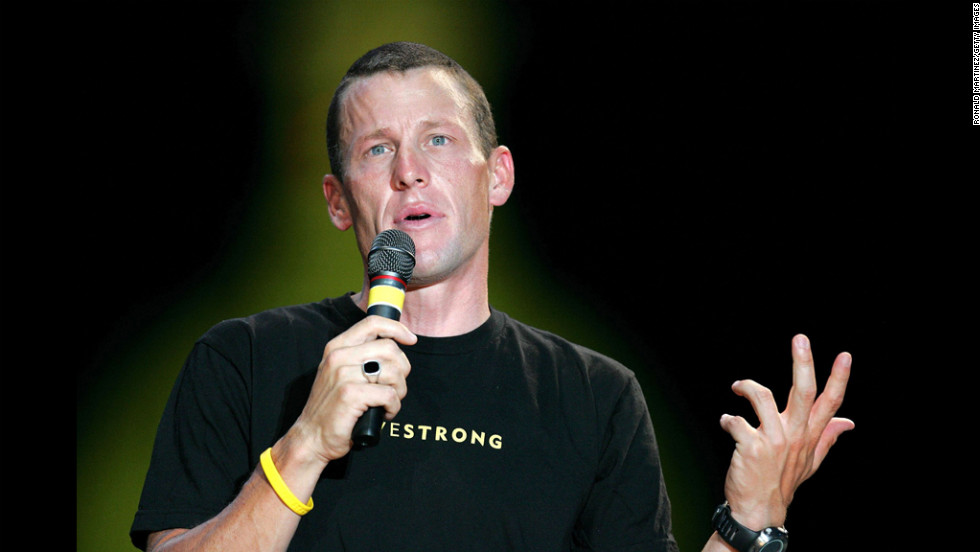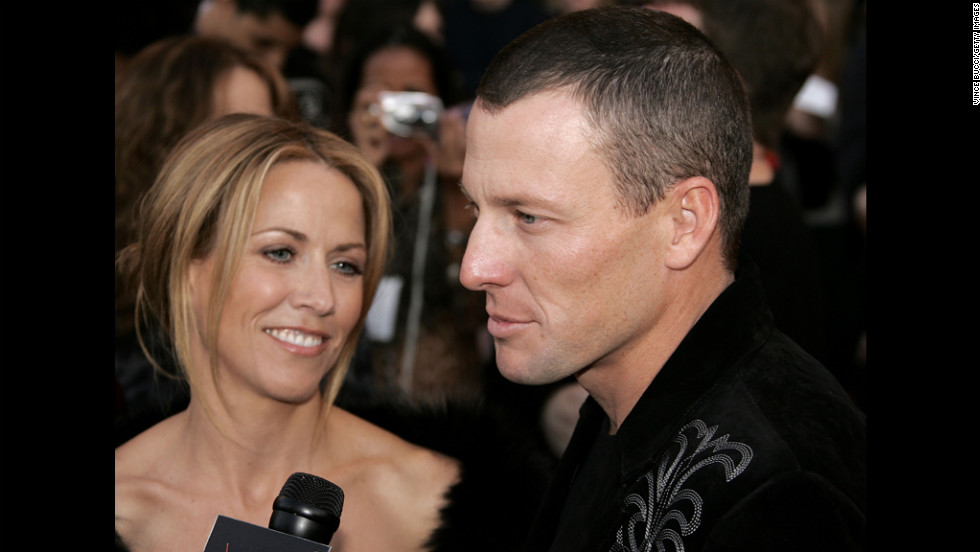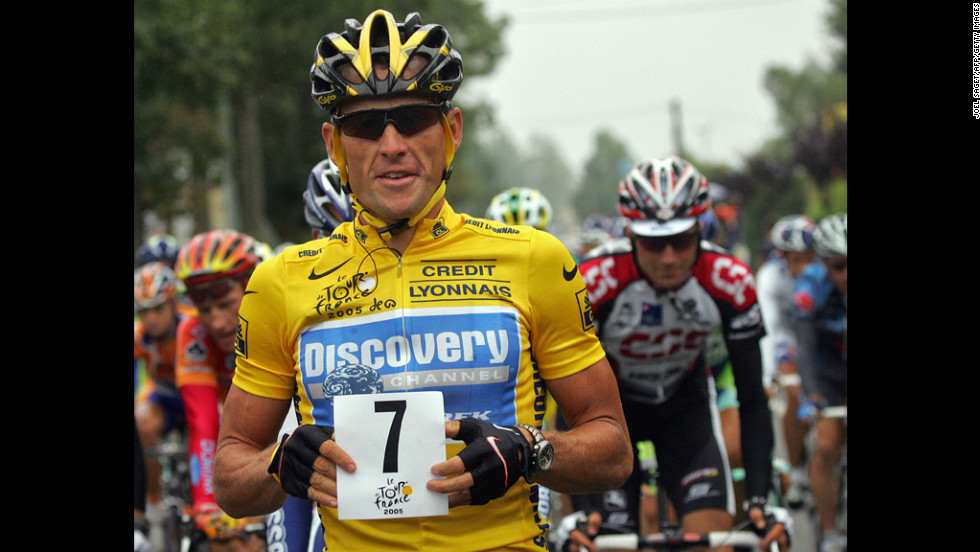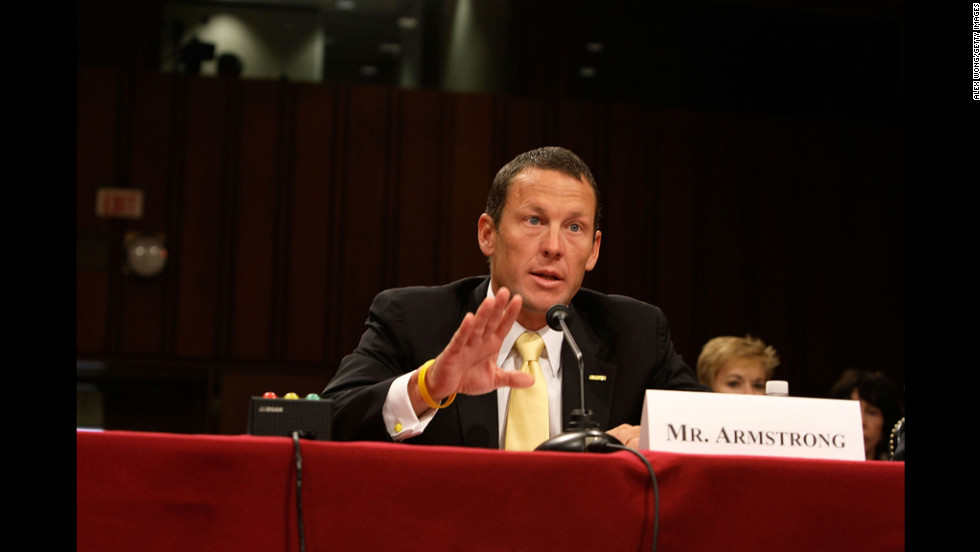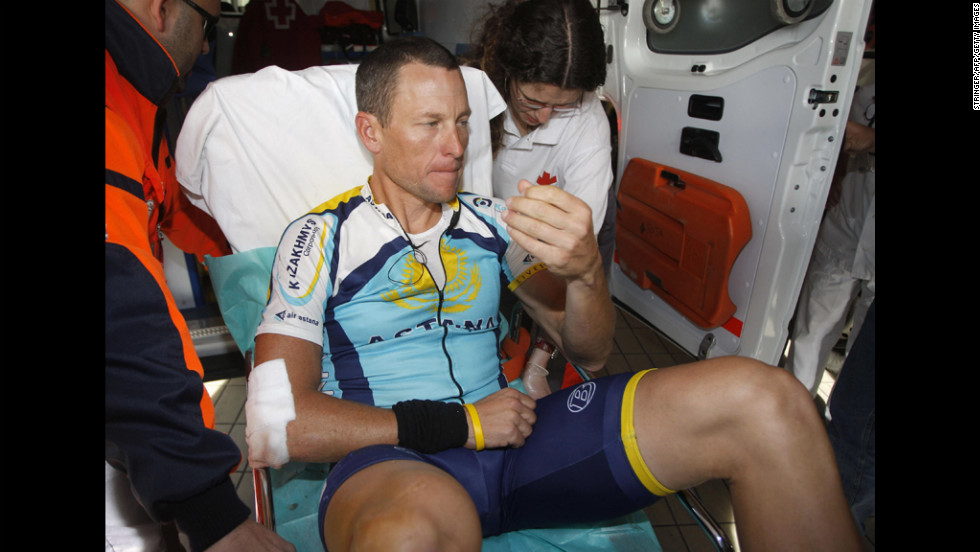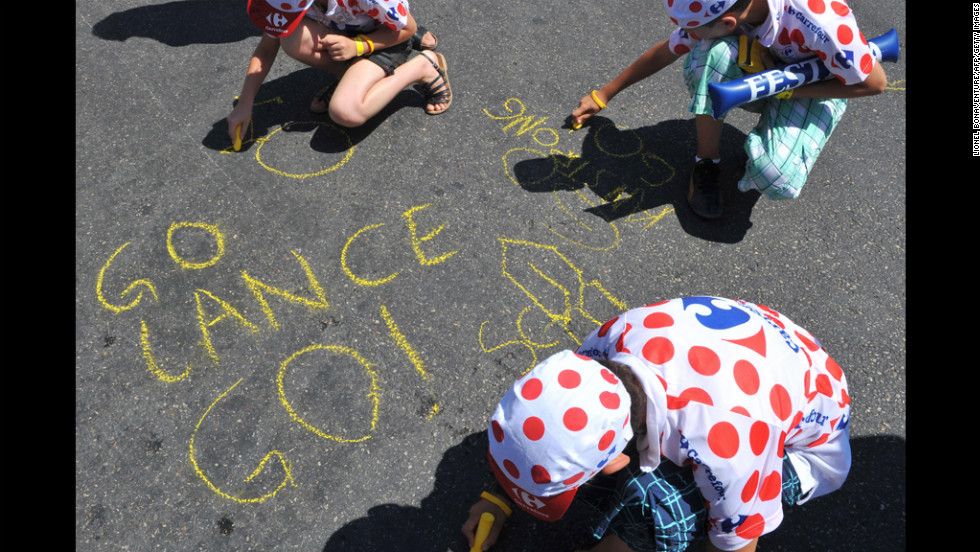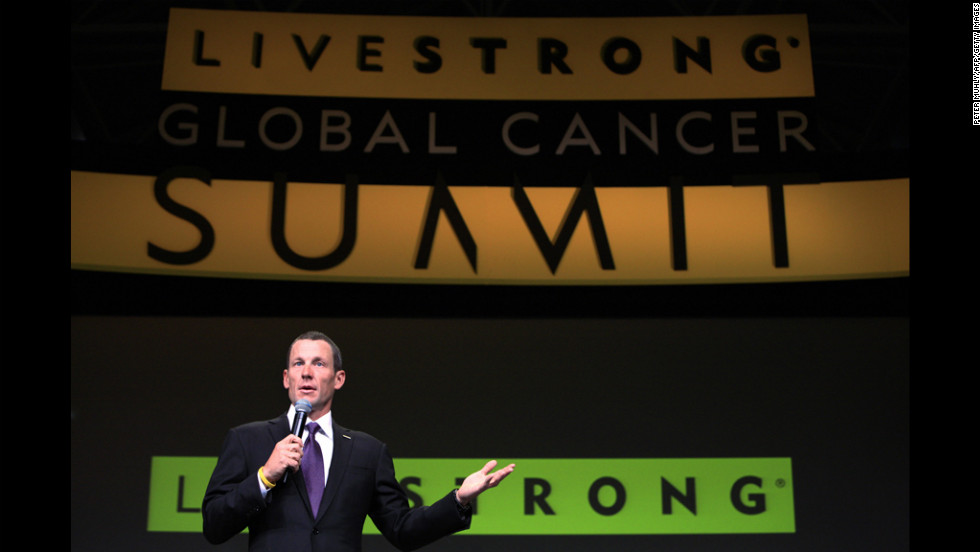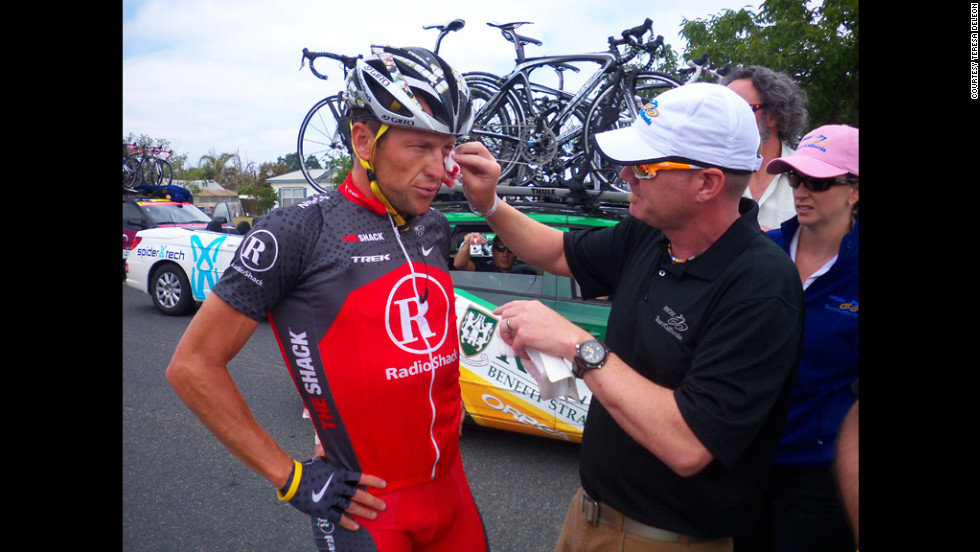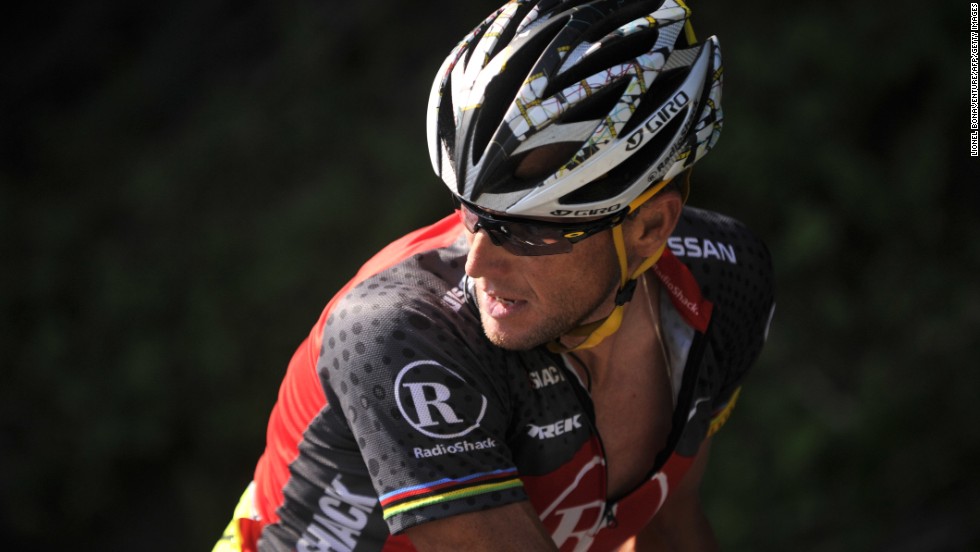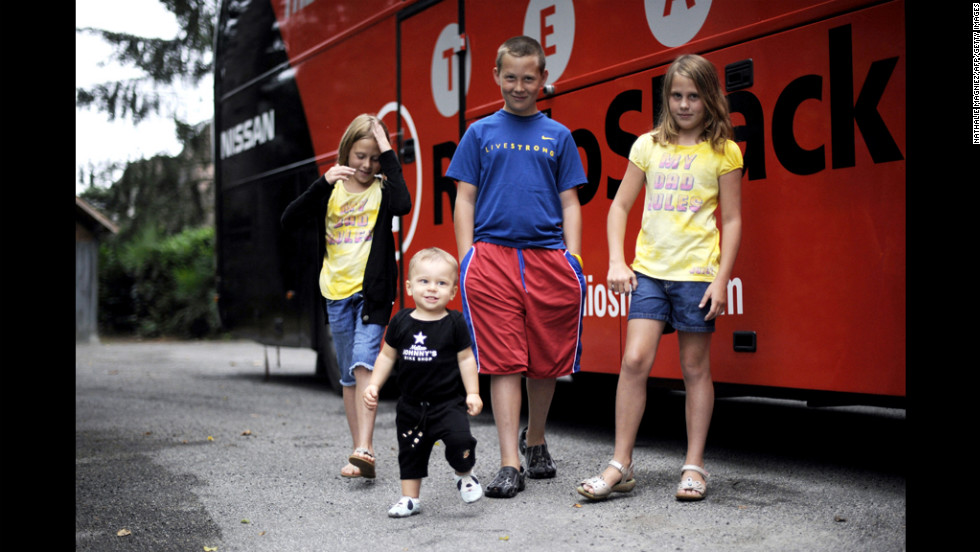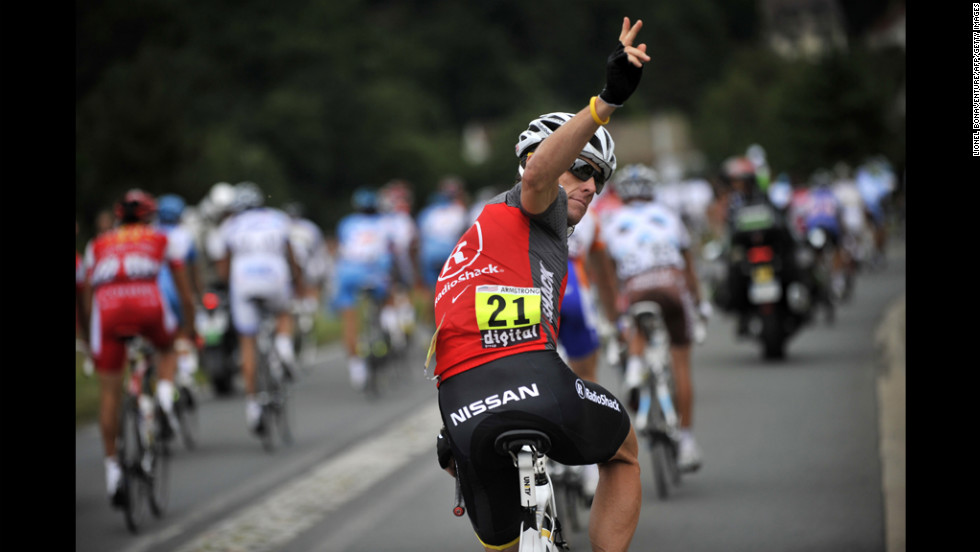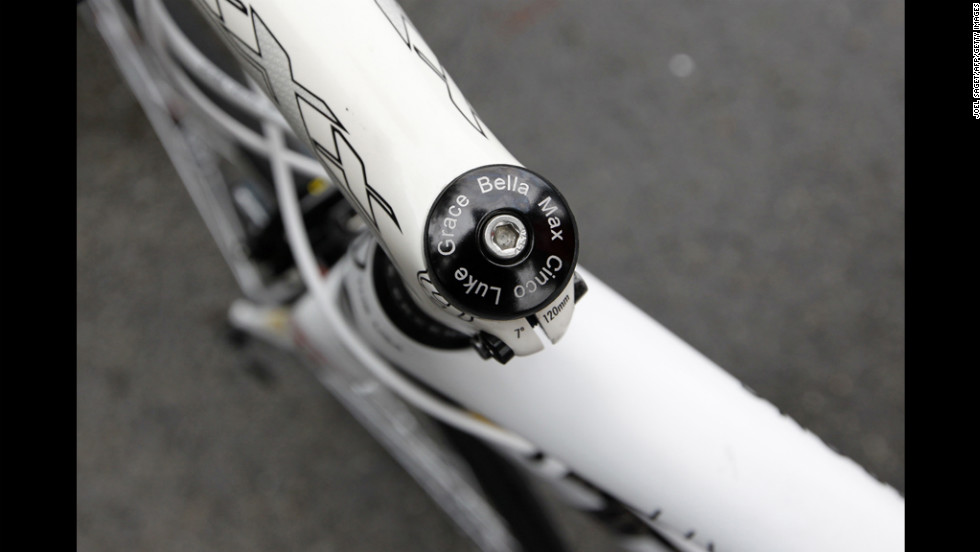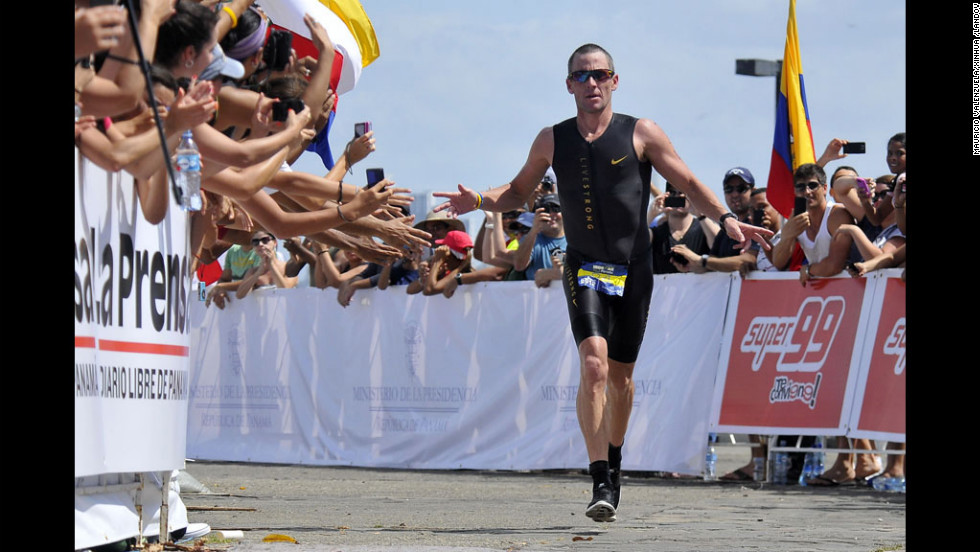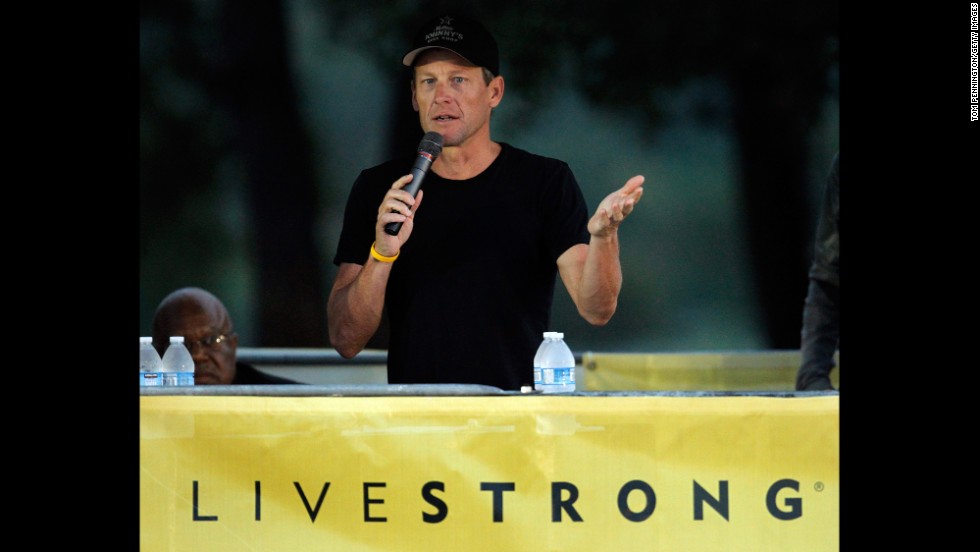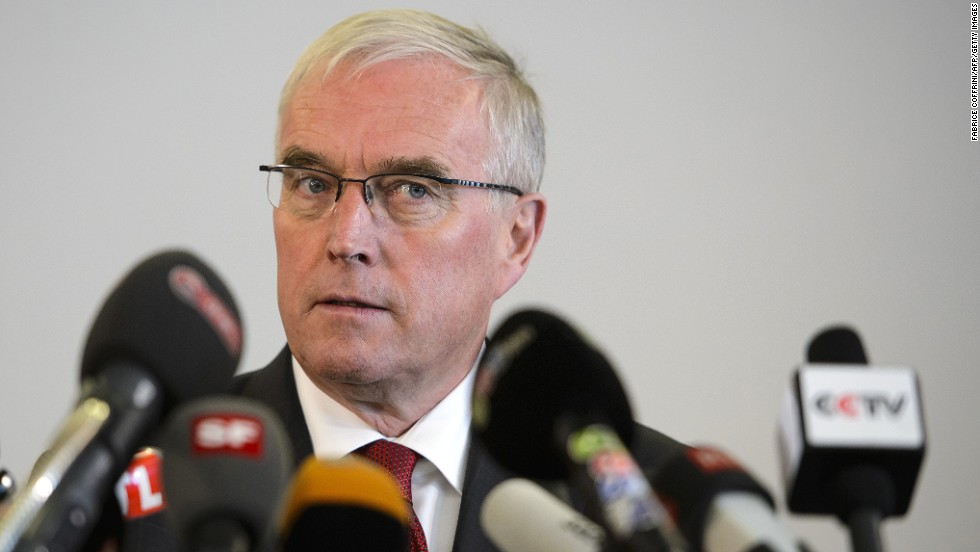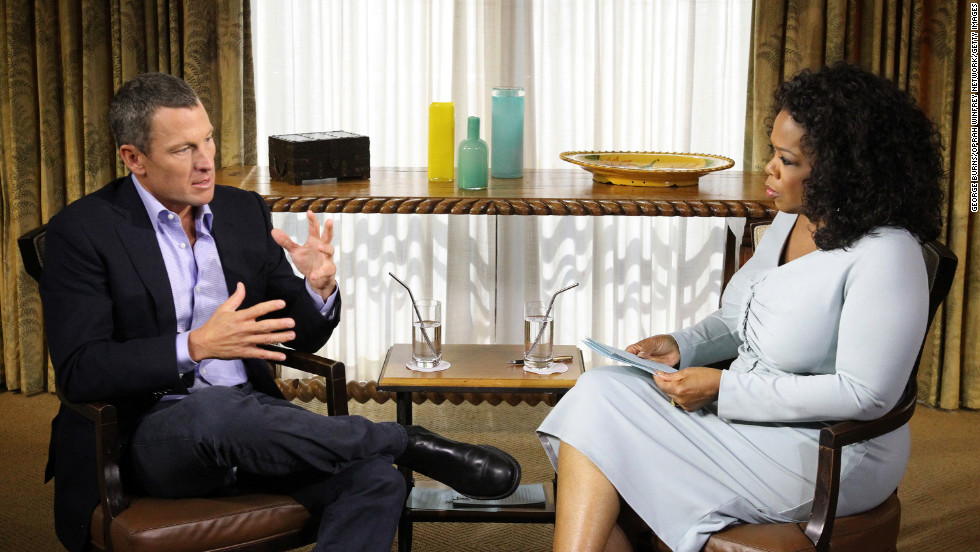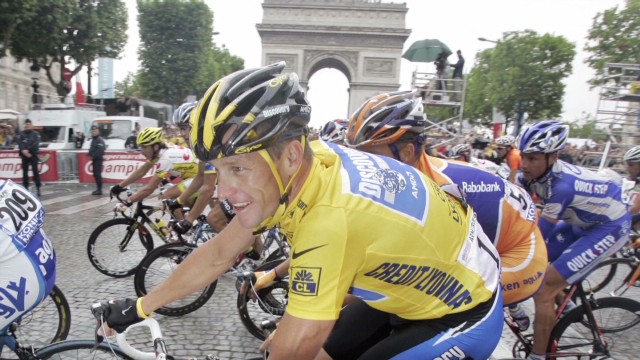Story highlights
- "I didn't invent it; I didn't end it. My bad for playing along," Armstrong says of doping
- Iowa appearance is his first public event on a bike since his doping admission in January
- He says his main concern is his children and their reaction to his fall from grace
In his first major cycling event since his doping admission, Lance Armstrong says he still anticipates fallout from the scandal that erased his Tour de France victories. But he's "a big boy" and can handle it.
Armstrong admitted this year for the first time that he doped throughout his cycling career. His admission, after years of defiantly shunning such allegations, was followed by a brief disappearance from the limelight.
The disgraced cyclist on Monday attended the Register's Annual Great Bicycle Ride Across Iowa, his first major cycling event since his admission.
In an interview with the Des Moines Register, he said the event's attendees have been supportive.
"I didn't expect a wave of hostility ... so far there's not been any middle fingers," he told the paper. "But it may happen, and I'm prepared for that. That's just the nature of the story, and I understand that."
Armstrong admitted in January that he used an array of performance-enhancing drugs to fuel his seven Tour victories.
They included testosterone, human growth hormone and blood transfusions to excel in the highly competitive world of cycling, he said in an interview with Oprah Winfrey.
Some cycling fans expressed feelings of betrayal after his admission, which included confessions that he bullied those who tried to bring the allegations to light.
Others argued that his cancer survival story inspired millions and his charity, Livestrong, helped those battling the disease.
But for many, he said, his doping remains a sensitive topic.
"I think it's a polarizing topic for some people. I'm not ignorant when it comes to that," he told the paper. "I know it was an unfortunate period in our sport. When I say period, I mean 10, 15, 20 years, and unfortunately for me, I came right smack dab in the middle of that period."
However, he told the paper, he was not prepared for the backlash that followed his admission.
"The reaction and fallout was more than I expected ... but that's life. I'm a big boy. Again, a polarizing topic that left a lot of people stumped. It wasn't a pretty time. I didn't invent it. I didn't end it. My bad for playing along."
Born in Texas, Armstrong, 41, started professional cycling at a young age. But his sporting career ground to a halt in 1996, when he was diagnosed with testicular cancer at age 25.
His 1999 Tour de France win seemed all the more extraordinary after he fought off a disease that had spread to his lungs, abdomen and brain. He went on to get more straight wins until 2005.
He then left the sport, only to return four years later and finish third.
Armstrong was stripped of his Tour titles and banned from professional sports for life by the U.S. Anti-Doping Agency.
His reputation is in tatters, and the cycling victories that made him a legend are now wiped away. He has been asked to repay millions of dollars to a host of organizations, including the French Cycling Federation.
However, his biggest concern is his five children and their reaction to his fall from grace. His youngest, ages 2 and 4, are especially vulnerable, he said.
"They're going to grow up into a time where everything is forever. Everything will be on YouTube; everything will be cataloged. So forever, they'll live with it," he said. "That's my job to try and walk the line with them now."
Armstrong continues his ride Tuesday, his final day at the weeklong event.
